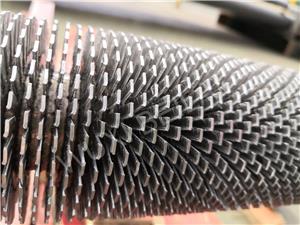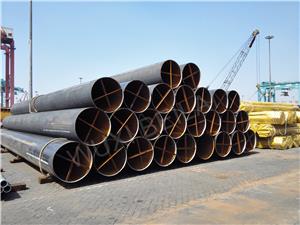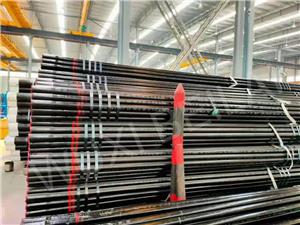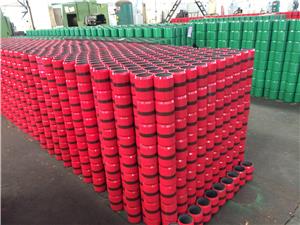ISO11960 Tubing And Casing: Understanding the Industry Standard for Oil and Gas Production
ISO11960 is a key international standard that defines the technical requirements for the manufacturing and inspection of tubing and casing products used in the oil and gas industry. These components play a critical role in the drilling, completion, and production phases of a well, ensuring that the entire process operates efficiently and safely. The ISO11960 standard covers a wide range of specifications, including material quality, dimensional tolerances, mechanical properties, and testing procedures. Tubing and casing are crucial for maintaining well integrity, controlling pressure, and preventing the migration of fluids within the wellbore.
In this article, we will dive into the essential aspects of ISO11960 tubing and casing, explore their role in the oil and gas industry, and highlight the key technical requirements set forth by this standard. Whether you're a manufacturer, service provider, or end-user, understanding these specifications is crucial for ensuring the reliability and safety of your well operations.
The Importance of ISO11960 Tubing and Casing in Oil and Gas Operations
ISO11960 tubing and casing are primarily used for well construction and production in the oil and gas sector. Casing, the larger diameter pipe, is inserted into the well to prevent the walls from collapsing and to provide a conduit for the extraction of hydrocarbons. Tubing, which has a smaller diameter, is used to bring the extracted fluids to the surface and deliver them to processing facilities.
The standard ensures that both tubing and casing meet specific quality and performance criteria, making them suitable for use in various challenging environments, including deepwater drilling, high-pressure wells, and high-temperature reservoirs. The primary goals of the ISO11960 standard are to ensure well integrity, minimize the risk of leaks or failures, and promote the safe and efficient production of hydrocarbons.
Several key factors underscore the importance of ISO11960 tubing and casing in oil and gas operations:
Material Selection and Quality: The materials used to produce tubing and casing must withstand extreme conditions such as high pressures, aggressive chemicals, and extreme temperatures. ISO11960 sets specific guidelines for selecting materials that exhibit the necessary strength, corrosion resistance, and durability.
Performance under Extreme Conditions: Tubing and casing must be able to handle high pressures and temperatures encountered during drilling and production operations. ISO11960 specifies mechanical properties, including yield strength, tensile strength, and hardness, to ensure that the products can withstand these demanding conditions.
Safety and Environmental Considerations: Tubing and casing components play a vital role in preventing fluid migration, wellbore collapse, and surface contamination. The use of high-quality, ISO11960-compliant products reduces the risk of failure, ensuring the safety of both personnel and the environment.
Key Requirements of ISO11960 for Tubing and Casing Products
ISO11960 lays down comprehensive requirements that manufacturers must follow when producing tubing and casing for the oil and gas industry. Some of the most important aspects of the standard include:
Material Grades and Specifications: ISO11960 defines multiple grades of material based on the mechanical properties required for different applications. For example, high-strength materials like API 5CT L80 and J55 are commonly used for casing, while API 5CT T95 and P110 grades are more suited for deeper wells and high-pressure environments.
Dimensional Tolerances: The standard specifies the allowable dimensions for tubing and casing, including outer diameter (OD), inner diameter (ID), wall thickness, and length. These tolerances ensure that the products fit properly into the wellbore and align with the requirements of well construction and production operations.
Thread Connections: One of the most critical aspects of tubing and casing is the threaded connections that join sections of the pipe together. ISO11960 provides detailed requirements for thread design, ensuring a tight seal and preventing leakage or premature failure. Common thread types include API buttress threads and premium connections for higher-performance applications.
Mechanical Properties: The standard specifies mechanical tests to verify the strength and toughness of tubing and casing. These include tests for yield strength, tensile strength, elongation, and hardness. High-strength materials are essential for maintaining well integrity in challenging environments, such as deep wells and high-pressure applications.
Corrosion Resistance: Tubing and casing used in the oil and gas industry are often exposed to corrosive fluids, including brine, hydrogen sulfide, and carbon dioxide. ISO11960 outlines requirements for the materials' resistance to various forms of corrosion, including general corrosion, pitting, and stress corrosion cracking.
Inspection and Testing: ISO11960 mandates several tests to verify the quality of tubing and casing, such as hydrostatic testing, dimensional inspection, and non-destructive testing (NDT). These inspections are essential for detecting any flaws or defects in the material that could compromise the product's performance.
The Role of ISO11960 in Enhancing Wellbore Integrity and Safety
One of the primary goals of the ISO11960 standard is to ensure that tubing and casing products contribute to maintaining wellbore integrity. Wellbore integrity is critical for preventing fluid migration, maintaining pressure control, and ensuring that hydrocarbons are extracted safely and efficiently. ISO11960 helps manufacturers meet the stringent requirements for materials, design, and testing that are essential for maintaining the structural integrity of the well.
By adhering to the ISO11960 standard, operators can significantly reduce the risk of well failure, which could lead to catastrophic events such as blowouts, leaks, or environmental contamination. The standard provides the framework for manufacturers to produce high-quality tubing and casing products that meet the necessary performance requirements, ultimately enhancing the safety and longevity of the well.
ISO11960 is a vital standard in the oil and gas industry that defines the technical requirements for tubing and casing products used in well construction and production. By setting strict guidelines for material quality, mechanical properties, thread connections, and corrosion resistance, ISO11960 ensures that these critical components can withstand the harsh conditions encountered during drilling and production operations. Adhering to this standard helps maintain well integrity, enhance safety, and improve overall operational efficiency. As the oil and gas industry continues to push into more challenging environments, the role of ISO11960 in ensuring reliable and high-performance tubing and casing products becomes even more essential.




